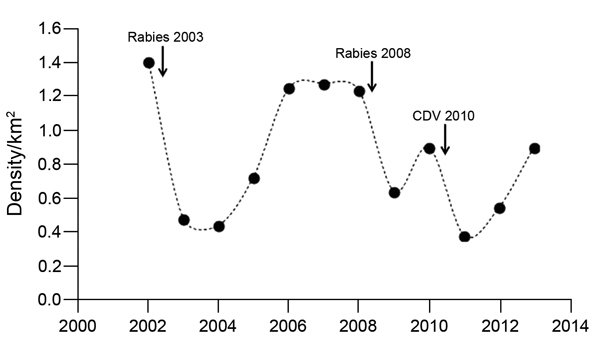Volume 21, Number 5—May 2015
Research
Canine Distemper in Endangered Ethiopian Wolves
Figure 4

Figure 4. Density of adult and subadult Ethiopian wolf population in Web Valley, Ethiopia, 2002–2013. Dots indicate wolf population estimates at different time points; arrows indicate known rabies epizootics and canine distemper virus outbreaks in this study. Of 7 wolf packs in Web Valley, 4 went extinct after the 2010 canine distemper virus outbreak; in 2011, two new packs formed in the area.
Page created: April 18, 2015
Page updated: April 18, 2015
Page reviewed: April 18, 2015
The conclusions, findings, and opinions expressed by authors contributing to this journal do not necessarily reflect the official position of the U.S. Department of Health and Human Services, the Public Health Service, the Centers for Disease Control and Prevention, or the authors' affiliated institutions. Use of trade names is for identification only and does not imply endorsement by any of the groups named above.